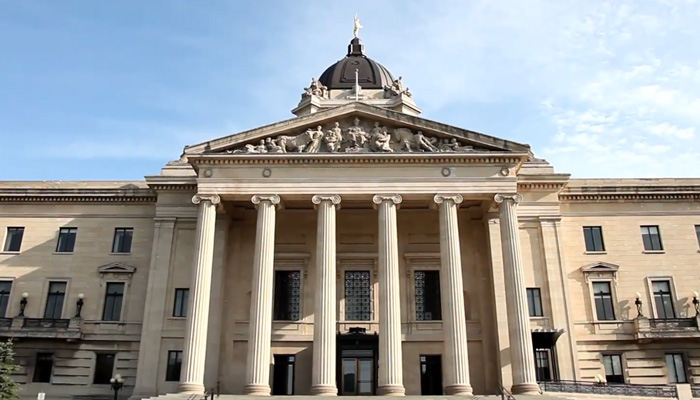The 2021-22 year-end financial results improved from earlier projections, despite the challenges and uncertainties related to the COVID-19 pandemic and its continuing impact on economies around the world.
“Last year showed a strong economic recovery, with a low unemployment rate and markedly improved consumer demand,” said Finance Minister Cameron Friesen.
The Manitoba government released the public accounts for the 2021-22 fiscal year with a year-end deficit of $704 million, an improvement of $1.4 billion over the previous year’s deficit of $2.1 billion. Summary revenues were higher than expected from provincial sources as the economy recovers from the ongoing COVID-19 pandemic with higher employment, wage growth and increased economic activity. Increased one-time federal transfers for health, drought relief and new federal commitments on early learning and child care helped to improve the province’s revenue during the fiscal year.
Manitoba invested over $1 billion in its COVID-19 response to provide support to businesses, non-profits and charitable sectors, and a range of other investments including personal protective equipment (PPE), school funding and the vaccine program. An additional $180 million was invested in health care to provide more surgeries and diagnostic tests for Manitobans requiring care while providing better wages for health-care workers responding to the pandemic.
Other notables from 2021-2022 include:
- The Education Property Tax Rebate, which provided a 25 per cent rebate to Manitoba households and farms, with a 10 per cent rebate for commercial properties.
- 2021-22 was a challenging time to make infrastructure investments due to labour and material supply chain shortages across the entire construction sector. Despite those challenges, Manitoba invested over $1.5 billion in strategic infrastructure, with some projects finishing ahead of schedule and under budget in 2021 and 2022.
- Manitoba’s total borrowings increased by $1.1 billion to $32.4 billion in 2021-22 from $31.3 billion in 2020-21. Debt servicing costs decreased by $27 million to $967 million, which reflects changes in interest rates in previous years.
- The creation of a new $50-million venture capital fund to give Manitoba companies much-needed access to equity, innovation funding and expansion capital, which will create and maintain jobs in Manitoba.
Both the 2021-22 public accounts and the 2022-23 first quarter report show significant improvements to budgeted targets amid global economic challenges, the minister noted.
The 2022-23 first quarter report forecasts a year-end deficit of $202 million – an improvement over the Budget 2022 projection driven primarily by Manitoba Hydro’s dramatic improvement in its net income forecast due to record high water levels and increased export prices, following a disappointing year in 2021 due to drought.
At this time a number of factors are again elevating uncertainty and will continue to pose fiscal challenges, such as the prolonged Russian invasion of Ukraine, persistent increases in consumer and commodity prices, supply chain disruptions, volatile markets, high unemployment levels, rising interest rates and oil prices. These are challenges that Manitobans will need to adapt to as this fiscal year closes and prepare for in the future, the minister noted.
Some notable items from the first quarter of 2022:
- inflation reached its highest level in 40 years, impacting affordability for Manitobans and the government responded by providing an additional $96 million for affordability programs to help ease the burden of rising costs;
- an increase of the Education Property Tax Rebate to 37.5 per cent from 25 per cent in Budget 2022, providing 450,000 Manitobans who pay education property taxes with an additional $581; and
- implementation of a new Residential Renters Credit, providing benefits to 45,000 more households.
“Manitoba government will continue to deliver on our commitment to invest in health care, education, social services and support for businesses and families facing record inflationary pressures,” said Friesen. “We will help families adjust to the current economic challenges with our affordability measures and supports for seniors, workers and families.”
View the 2021-22 public accounts and 2021-22 first quarter results at gov.mb.ca.




